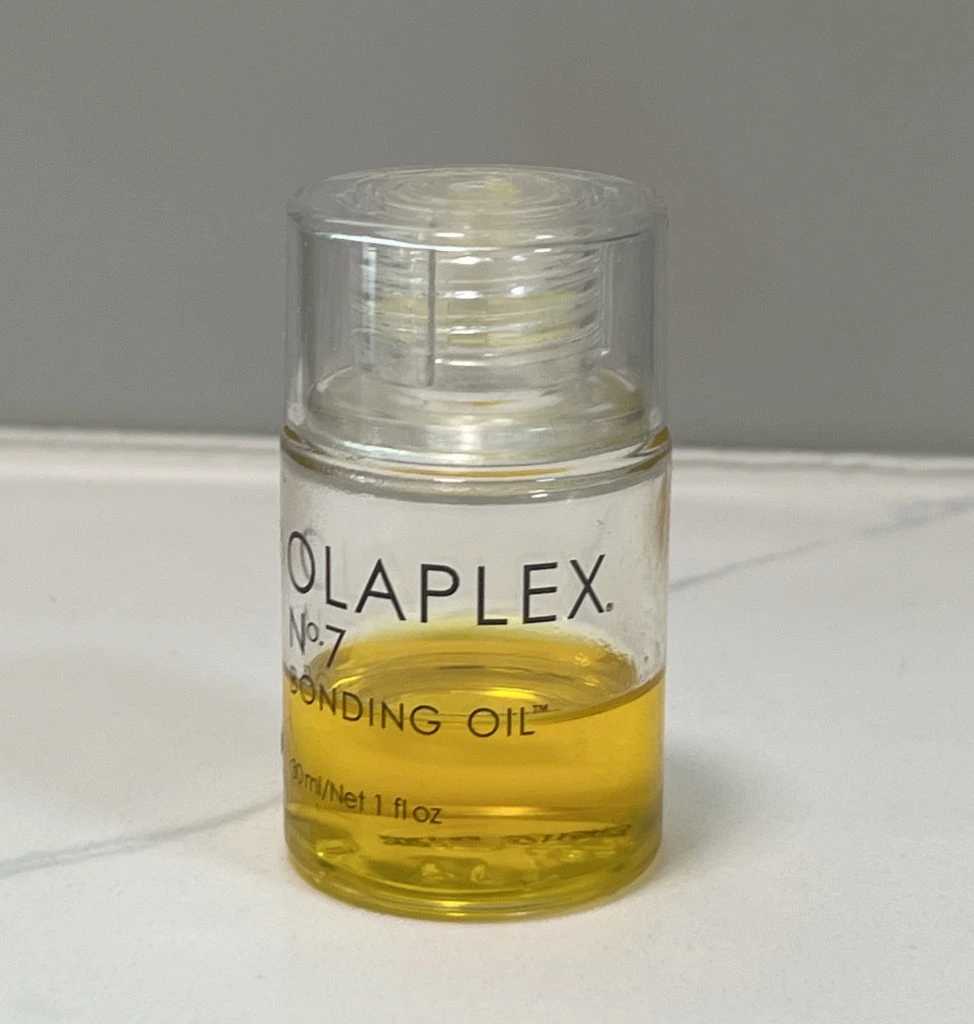I Tried This Cult-Favorite Oil for Thicker, Stronger Hair—And I…
As a Black woman with afro-textured hair, I grew up hearing phrases like, “The higher the hair, the closer to God.” This 60s-era idiom gained popularity alongside mid-century hair trends like the beehive as well as the Black is Beautiful movement that celebrated big, high hair. Half a century later, I came of age during the natural hair revival, with many Black women abandoning chemical straighteners to rediscover their natural hair. Gone were the narratives about “taming” unruly hair types. Instead, hair trends are now catered to getting that coveted big hair back.
All this to say, I’ve tried literally everything to grow strong, thick, and yes—big hair. From rice water to rosemary water, trends that are now blowing up on TikTok were popular on Black hair care blogs for years. I’ve become convinced that when it comes to trends, Black beauty bloggers can predict the future. Which is why I’ve long been using oils like castor oil, tanamu oil, and grapeseed oil for hair that I love.
Featured image from our interview with Roti Brown by Michelle Nash.
1 of 13

Image by Michelle Nash

Grapeseed Oil for Hair: What to Know
Hair oils are not a new solution. But there’s a more strategic way to use them than slathering on whatever well-packaged hair serum catches your eye. And no, I’m not talking about oil training. Though oil training works for some hair types, turns out it’s not about how much oil you use—it’s the kind of oil that counts. Different oils have different benefits, and just as with skincare, what works for someone else might not work for you.
However, grapeseed oil—aka Vitis Vinifera seed oil—is getting a lot of buzz because of its universality. Made from the seeds of grapes, this oil is more versatile than most. You can use it for cooking, for skin care, and also for hair. Its lightweight texture and rich ingredients are making it a popular oil to add to your haircare routine.
2 of 13

Meet the Expert
But what are the benefits of grapeseed oil? And is it worth the hype? I spoke to Jake Woods, dermatologist and co-founder of GyaLabs, about why exactly using grapeseed oil is such a popular application. And to be sure about its benefits, I tried the internet’s favorite grapeseed oil: the Olaplex No.7 Bonding Hair Oil.
What I learned? Grapeseed oil is a bonafide solution for split ends, damage, and parched strands. If you’ve been neglecting your hair care, grapeseed oil can provide near-instant, visible relief. Especially when combined with other rich oils, grapeseed oil can drastically improve your hair health in just one application. (No oil training necessary.) Read on for everything you need to know about using grapeseed oil for hair.
3 of 13

Grapeseed Oil at a Glance
According to Dr. Woods, there are many benefits to using grapeseed oil due to its antioxidant and fatty acid-rich ingredients. He notes that “grapeseed oil contains various active ingredients that contribute to its beneficial properties.” Here’s a further breakdown.
Essential Fatty Acids. Grapeseed oil is rich in essential fatty acids, particularly linoleic acid (omega-6 fatty acid) and oleic acid (omega-9 fatty acid). These fatty acids are important for maintaining the health and integrity of the skin and hair.
Vitamin E. Grapeseed oil contains tocopherols, a form of vitamin E. Vitamin E is a powerful antioxidant that helps protect cells from oxidative damage caused by free radicals. It helps hydrate and nourish skin and hair.
Proanthocyanidins. Grapeseed oil is a good source of proanthocyanidins, potent antioxidants. Proanthocyanidins help protect the skin and hair from environmental damage, including UV radiation and pollution. They also have anti-inflammatory properties that can soothe and calm the skin.
Polyphenols. Grapeseed oil contains various polyphenols, including flavonoids and phenolic acids. These compounds have antioxidant and anti-inflammatory properties, contributing to the overall health and well-being of the skin and hair.
Resveratrol. Grapeseed oil may contain small amounts of resveratrol, a polyphenol known for its antioxidant and anti-aging properties. Resveratrol has been studied for its potential benefits in promoting healthy skin and reducing signs of aging.
4 of 13

The Benefits of Using Grapeseed Oil for Hair
Curious if grapeseed oil can really transform dry and damaged hair? The benefits speak for themselves.
Moisturizes the scalp. Grapeseed oil is lightweight and easily absorbed by the scalp, making it an effective natural moisturizer. It helps hydrate the scalp, preventing dryness and flakiness which can contribute to dandruff.
Nourishes and conditions hair. Grapeseed oil contains essential fatty acids, such as linoleic acid, which can help nourish and condition the hair. It moisturizes the hair strands, making them softer, smoother, and more manageable. Regular use of grapeseed oil can help improve the overall appearance and texture of the hair.
Strengthens and promotes hair growth. The antioxidants help to strengthen the hair follicles and promote healthy hair growth. By providing essential nutrients to the hair roots, it can potentially enhance hair thickness and reduce hair breakage.
Adds shine and luster. Grapeseed oil has a light texture that doesn’t weigh down the hair. It acts as a natural conditioner, adding shine and luster to the hair strands without leaving a greasy residue. It can help revive dull and lifeless hair, leaving it looking healthy and vibrant.
Protect against heat and environmental damage. Grapeseed oil has a high smoke point, which means it can withstand heat without breaking down and causing damage to the hair. It forms a protective barrier on the hair strands, shielding them from the harmful effects of heat-styling tools and environmental stressors like pollution and UV rays.
5 of 13

What other ingredients work well with grapeseed oil?
Grapeseed oil can be combined with various other ingredients to enhance its benefits and create customized haircare formulations. Some ingredients that work well with grapeseed oil include:
Essential Oils. Adding essential oils to grapeseed oils can provide therapeutic benefits. Lavender essential oil can soothe and calm the skin, tea tree oil has antibacterial properties, and rosemary oil can stimulate hair growth.
Carrier oils. Mixing different carrier oils with grapeseed oil can create a blend with a broader range of benefits. Jojoba oil is known for its moisturizing properties, coconut oil is deeply nourishing, and argan oil is rich in antioxidants.
Aloe Vera Gel. Combining grapeseed oil with aloe vera gel can create a soothing and hydrating blend. Aloe vera has moisturizing, calming, and healing properties, making it suitable for sensitive or irritated skin. This combination can be used as a moisturizer or soothing treatment for sunburns.
Vitamin E Oil. Grapeseed oil already contains some vitamin E, but adding additional vitamin E oil can boost its antioxidant properties. It can help protect the skin from free radical damage, promote healing, and improve overall skin health.
Hyaluronic Acid. Mixing grapeseed oil with hyaluronic acid can provide excellent hydration benefits. Hyaluronic acid is a humectant that attracts and retains moisture, helping to plump and moisturize the skin. This combination can be beneficial for dry or dehydrated skin.
Herbal Extracts. Incorporating herbal extracts like chamomile, green tea, or calendula into grapeseed oil can offer additional soothing, anti-inflammatory, or antioxidant properties.
The Best Grapeseed Oils for Hair
Every product is curated with care by our editors and we’ll always give an honest opinion, whether gifted or purchased ourselves. If you buy something through our links, we may earn a small commission at no cost to you.
6 of 13

Best Overall: Olaplex No.7 Bonding Oil
Everything by Olaplex is so hyped up, I wasn’t sure if it could live up to the fanfare. Claiming to repair damaged strands, increase shine, and promote softness, I was expecting a lot. And spoiler: this hair oil delivered. The first thing I noticed was its super light texture. Other oils such as castor oil and tamanu oil are heavy and thick, making them difficult to apply without weighing down your hair. The almost-liquid texture of this oil surprised and delighted me. Another difference between this and other oils is its lack of scent. I hate overly-scented products on my hair, and this no-frills oil did the job without leaving a lingering smell behind.
As for results, as they say, consistency is key. I used this oil every day for a week and noticed a considerable softness and shine. My hair definitely looked healthier and my curl pattern loved it. But as for long-term damage repair, I’ll have to wait and see. In the meantime, I can say I’m satisfied with the results so far and will keep using this oil to see if I can get even more benefits from it. Stay tuned!
Key Ingredients: Grapeseed Oil, Green Tea Oil
Hair Type: All hair types, especially damaged and dry
Like this project
Posted Jul 2, 2023
Used UGC and SEO-based trend research to create a comprehensive listicle on a trending topic.







